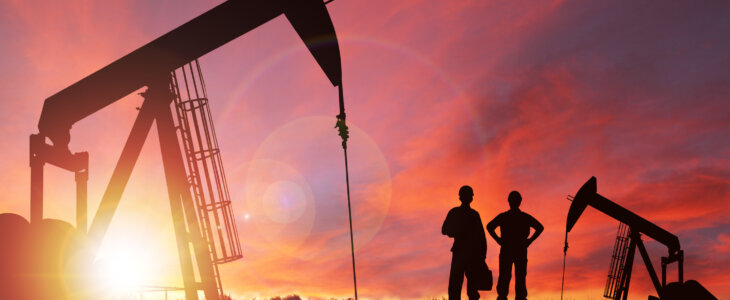Oil fields in Texas are some of the most dangerous work environments in the state. Every day, thousands of workers face hazardous conditions while performing physically demanding tasks. While safety regulations exist, the nature of oil field work still presents significant risks. If you or a loved one has been injured while working in an oil field, understanding the causes of these injuries and the legal options available is essential. In this blog, The Payne Law Group will explore the most common causes of oil field injuries and the steps you can take to protect your rights.
Common Causes of Oil Field Injuries
Oil fields are inherently dangerous due to the complexity of the operations and the heavy equipment involved. Here are some of the most frequent causes of injuries in Texas oil fields:
Explosions and Fires
Explosions and fires are among the most catastrophic incidents that can occur in an oil field. They often result from gas leaks, improper handling of flammable materials, or equipment malfunction.
- Common injuries: Burns, respiratory damage, traumatic injuries
- Risk factors: Poorly maintained equipment, lack of safety procedures, failure to properly store or transport hazardous materials
Heavy Machinery Accidents
Oil field operations rely heavily on machinery such as drilling rigs, cranes, and bulldozers. If these machines are not properly maintained or operated, they can cause devastating injuries.
- Common injuries: Crushed limbs, fractures, amputations
- Risk factors: Equipment failure, operator error, lack of adequate training
Falls from Heights
Falls from rigs, platforms, or scaffolding are a leading cause of injury in oil fields. The failure to provide adequate fall protection is often a significant factor in these accidents.
- Common injuries: Head trauma, spinal cord damage, broken bones
- Risk factors: Lack of guardrails, unsafe scaffolding, failure to provide safety harnesses
Exposure to Hazardous Chemicals
Working in an oil field means potential exposure to hazardous chemicals, including oil, gas, and other toxic substances. Workers who are not provided with proper protective gear are at risk of suffering from both immediate and long-term health effects.
- Common injuries: Chemical burns, respiratory issues, skin irritations
- Risk factors: Chemical leaks, lack of protective equipment, inadequate safety protocols
Transportation Accidents
Due to the remote locations of many oil fields, workers frequently rely on trucks and other vehicles for transportation. This increases the risk of vehicle accidents, which can occur both on-site and during travel to and from the oil field.
- Common injuries: Whiplash, broken bones, traumatic brain injuries
- Risk factors: Poor road conditions, driver fatigue, equipment failure
Overexertion and Heat Stress
Oil field workers often face long hours in extreme weather conditions, especially during the hot Texas summers. Without proper rest, hydration, and protection from the heat, workers can suffer from overexertion and heat stress.
- Common injuries: Heat stroke, dehydration, chronic fatigue
- Risk factors: Lack of breaks, insufficient water intake, inadequate shelter from the sun
Legal Options After an Oil Field Injury
If you’ve been injured in an oil field accident, there are several legal avenues available to seek compensation. Depending on the circumstances, you may be entitled to financial recovery through workers’ compensation, personal injury lawsuits, or third-party claims.
- Workers’ Compensation Claims: In Texas, employers are not required to carry workers’ compensation insurance, but many do. If your employer offers workers’ compensation, it can provide financial support while you recover.
- What workers’ comp covers: Medical expenses related to the injury, lost wages during recovery, and disability benefits for temporary or permanent impairments.
While workers’ compensation generally prevents you from suing your employer, there are situations where exceptions apply. For instance, if your employer does not carry workers’ comp, or if your injury resulted from gross negligence, you may have grounds for additional legal action.
- Personal Injury Lawsuits: If you are unable to file for workers’ compensation or if third-party negligence played a role in your injury, a personal injury lawsuit may be the best option. In this type of claim, you must prove that another party’s negligence caused your injury.
- Personal injury lawsuits can provide compensation for: Medical bills, pain and suffering, future lost wages or earning capacity, and emotional distress.
- Wrongful Death Claims: If a loved one tragically dies as a result of an oil field accident, family members may be eligible to file a wrongful death claim. This claim seeks compensation for the loss of financial support and the emotional impact of the death.
- Compensation may include: Funeral expenses, loss of income, and emotional damages.
- Third-Party Claims: In many cases, more than one party may be responsible for an oil field injury. For example, if faulty equipment from a manufacturer caused the injury, or a subcontractor’s negligence was a factor, you may be able to file a third-party claim.
- Third-party liability: This allows you to seek compensation from parties other than your employer, such as equipment manufacturers, independent contractors, or service providers.
Why You Need a Skilled Bryan and College Station Oil Field Injury Attorney
If you’ve been injured in an oil field accident, navigating the legal process can feel overwhelming–especially when you’re focused on recovering. At The Payne Law Group, we understand the unique challenges that oil field workers face and are dedicated to fighting for the compensation you deserve. Whether through workers’ compensation, personal injury lawsuits, or third-party claims, our experienced legal team will be by your side every step of the way. Don’t wait–your recovery and financial future depend on it. Contact us today for a free consultation and take the first step toward getting the justice you deserve.
